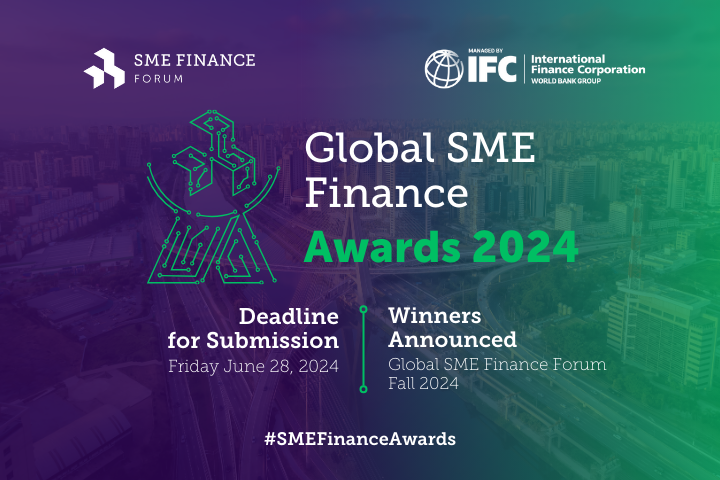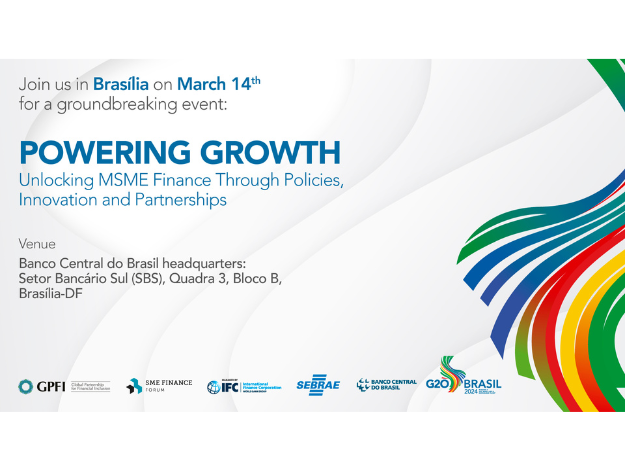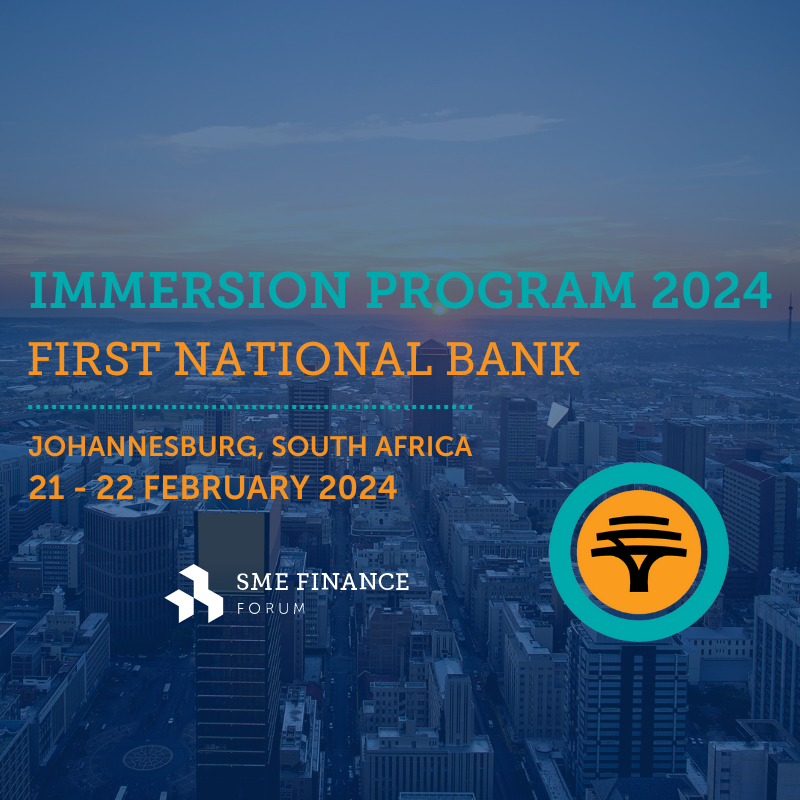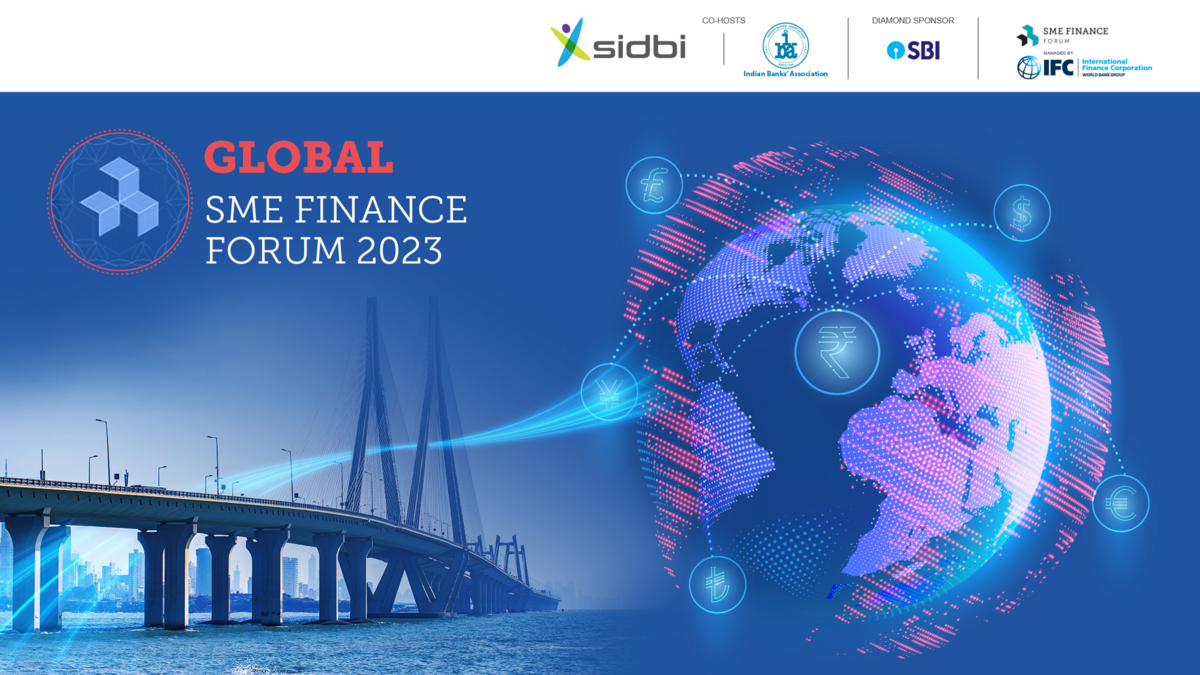Banks & Fintechs Adapting to an Ever-Evolving SME Finance Ecosystem - A Review of Flagship Global SME Finance Forum Panel
The business of financing SMEs is evolving at such a rapid rate that the future of the industry is becoming increasingly unpredictable. Traditional, monolithic banks have been the primary source of lending for enterprises of all sizes for decades; this has tended to leave SMEs underbanked. However, with the rise of fintechs, the explosion of data, and the technological revolution, the dominance of big banks in the real sector is being disrupted. In this panel, seven experts from banks and fintechs alike came together to discuss the threats and opportunities presented by this dynamic stage in SME financing development.
Overall, the tone of the discussion was largely positive and optimistic. Bank and fintech representatives alike regarded the expansion of big data and technology use as means to overcome many of the historical challenges that traditional banks have faced in financing SMEs. Large tech firms, such as Ant Financial and Alibaba, garner huge amounts of data from their e-commerce platforms. Effectively, these platforms operate as 24/7 data gathering sources, providing firms with a holistic view of clients’ transactions. This changes the nature of servicing the needs and financing of SMEs, allowing financial institutions to develop a client-centric approach. In this way, data allows the real sector to begin accessing these underbanked markets. However, there is still the challenge of gathering data on SMEs that operate informally, off the technological grid.
Philip Sigwart of Baobab, a microfinance group predominantly working in West Africa, explained that SMEs are sometimes hesitant to disclose data on their business due to fear of tax administration, perpetuating a significant barrier to financial inclusion. Wayne Hennessy-Barret, founder and CEO of fintech lender 4G Capital, suggested that to overcome this particular challenge, financial institutions must make an effort to rebuild trust in these underserved communities – many of which have been through economic and other hardships. It must be made clear that the customer and the protection of their data is of the upmost priority for financial institutions.
Along with data, the regulatory framework that presides over banks and fintechs was a major theme of the debate. Gokhan Koca, representing the views of established banks as the Head of SMEs at BBVA, said that the level of concern banks have regarding the technological and data transition is dependent upon the regulations put in place. Echoing this idea, Ali Niknam of bunq seemed to warn that institutions such as BBVA are protected by the current set of rules and regulations governing the financial sector, but the technological transition has the ability to change that. Indeed, the regulatory landscape that develops as the technological and data revolutions press forward will either support opportunities for banks and fintechs to join together in partnerships aimed at servicing SMEs, or constrain such opportunities. Optimistically, Koca believes the potential that lies ahead outweighs the threats.
Though the path forward for both banks and fintechs is ambiguous, there is more cause for hope than worry. This panel of industry leaders certainly believes in the opportunities presented by technology and data. Whether by forging into and expanding underserved markets, or fostering new partnerships amidst a culture of collaboration, banks and fintechs are primed to meet any challenges that may lie ahead with enthusiasm.
Main Ideas:
- The scope of threats and opportunities boils down to the regulatory landscape in which banks and fintechs operate – are they provided space for healthy competition? Does the regulatory system encourage partnerships? Does the client have access to the financing options they deserve? Regulators should create an environment that balances risk and encourages innovation.
- Fintechs should partner with banks that have a healthy “risk appetite,” but understand that the regulations that apply to banks sometimes impede them from SME lending
- Encouraging SMEs to go digital is an important step – some organizations have had success by incentivizing SMEs to accept mobile payments in order to qualify for bigger loans
- Knowledge transfer – creating financial literacy within the SME community – is a parallel goal to introducing technology and increasing SME profitability
Prepared by Kat Pardoe, Marketing Analyst at SME Finance Forum.
In South East Asia, we have QR transactions and that is data in our ecosystem that we leverage for our SMEs. Data that banks don’t have. A lot more information than a bank account.
Ankur Mehrotra @AnkurAbra Managing Director and Head @GrabSG#smefinance#SMEFF19 pic.twitter.com/kAjqkHmS0Y— SME Finance Forum (@SMEFinanceForum) October 7, 2019

“If you’re talking about getting the most out of clients’ data, maybe it’s time that we should talk about extending the scope of banking regulation with open finance and non-financial data.”

“The shifting role of regulators from being orchestrators and supervisors to being enablers and building ecosystems is that it’s the ecosystem and how it’s structured, or not, that allows everybody to play a role in a way that is coordinated.”

“I’m here today to be the challenger of all the other panelists, to be the voice of the people and the voice of change so that we – the people in this room, as well as entrepreneurs and SMEs – have the freedom of choice and get new products that will help make our lives easier.”

“Big tech can represent a threat to the financial sector, no doubt. But it’s more a question of time. Are we looking at the 5 – 10-year timeline or are we looking at a long term horizon? I would say [threats to banks are] very geographically specific in some ways. In some [countries], the [data and technological] transition would be much faster.”

“630 million [SME entrepreneurs] in Southeast Asia – only about 80 million people have ever taken out a loan in their SME segment. 60 – 70 percent of their needs are still not getting funded. That’s a massive, massive opportunity. And I don’t think it’s a matter of threat to the banks. It’s a matter of expanding the pie. It’s not a winner-take-all market. We need everyone to collaborate to make financial inclusion really happen.”













